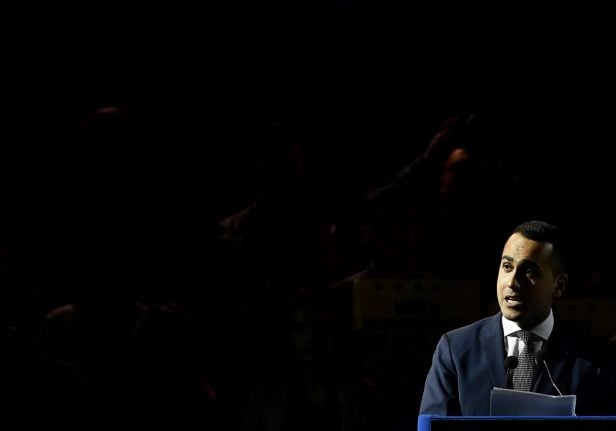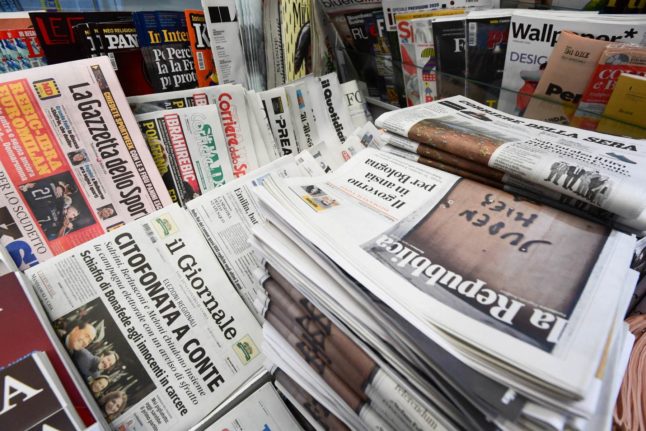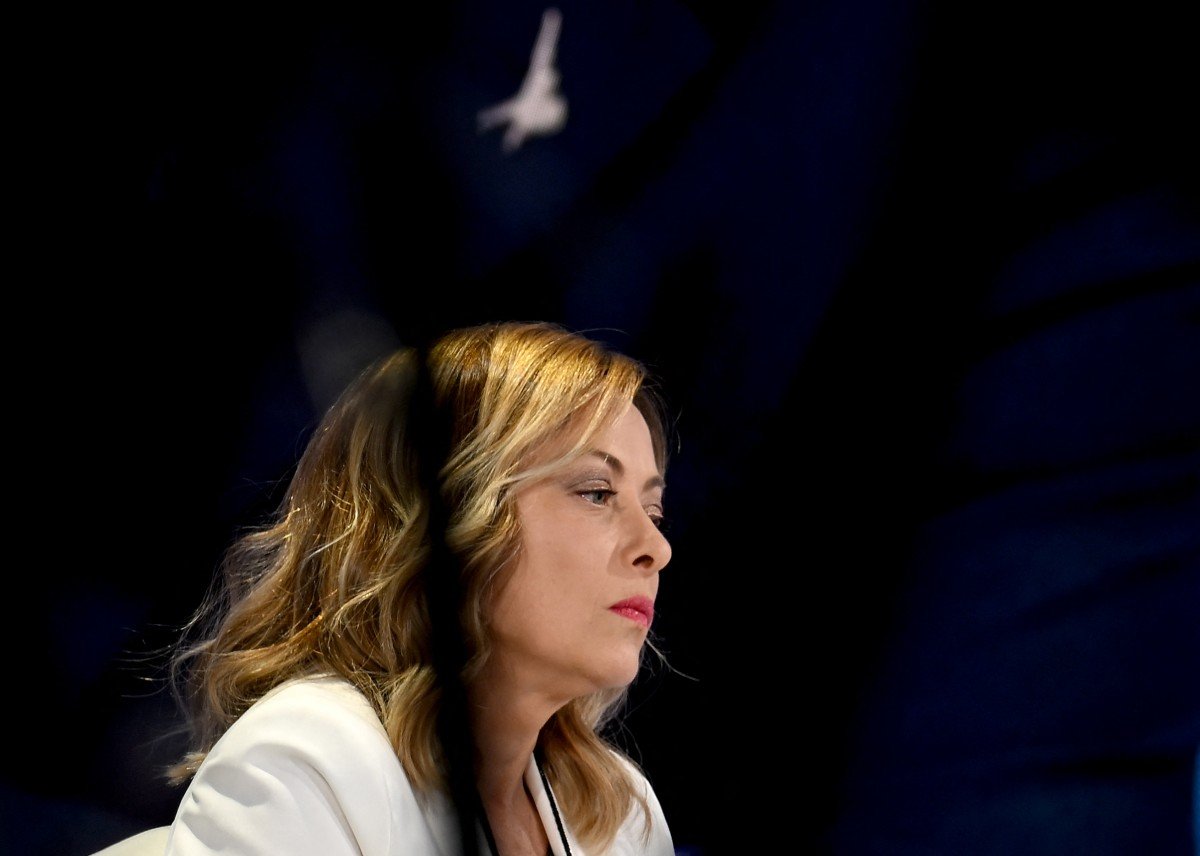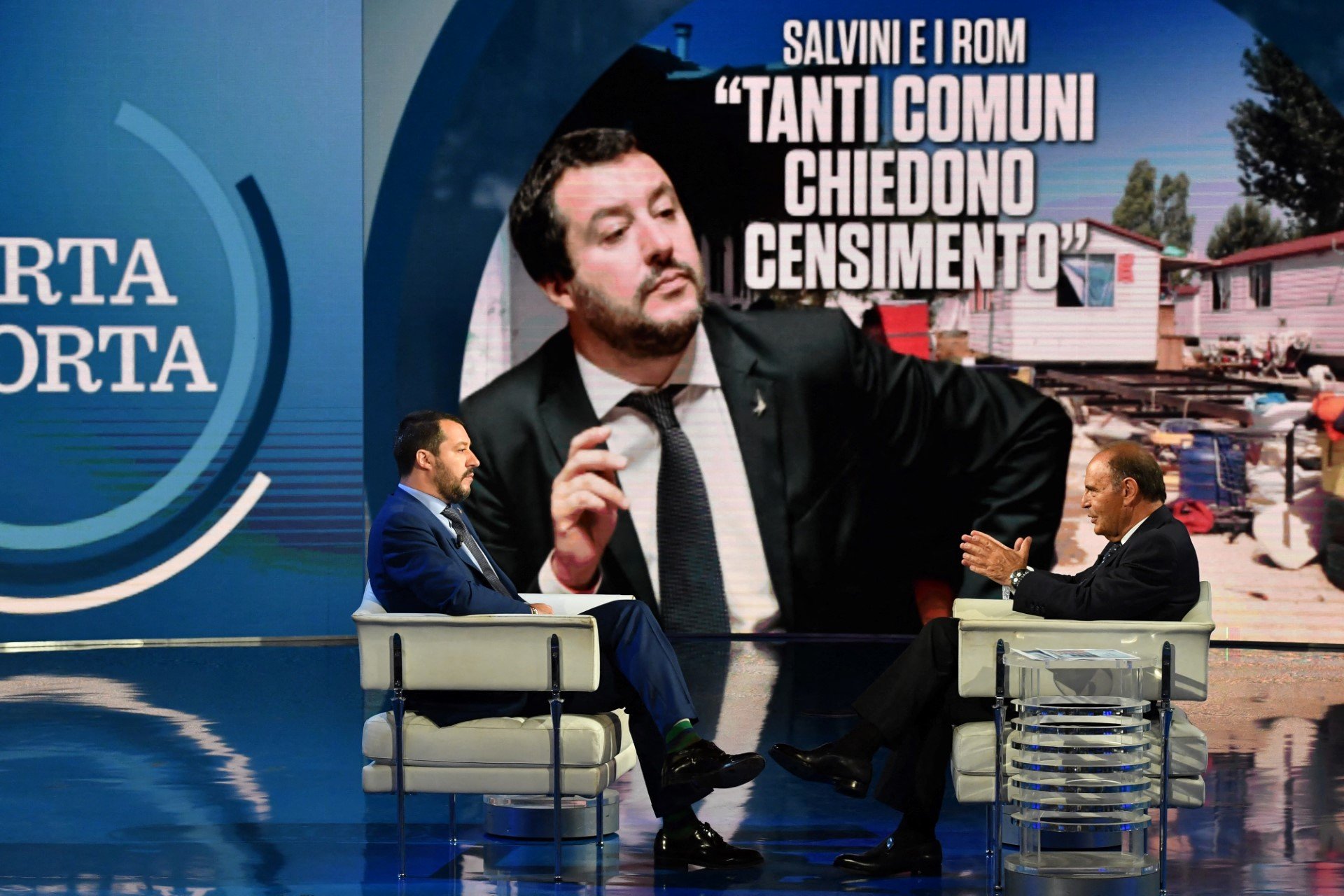“For years we've been giving without receiving, or we receive less than what we were due, we've been completely ignored for years on the matter of migrants, for instance,” said Di Maio, from the anti-establishment Five Star Movement (M5S).
“We bear all the weight, and as if that were not enough, they're lecturing us. This won't work, it's too easy,” Di Maio wrote on Facebook. “We will go to Europe and discuss responsibly, so we can construct and not destroy. But it's tough, when you see that every day they find another reason to say bad things about Italy and this government.”
The European Commission on Wednesday formally put Italy on notice over its deteriorating budget deficit and a huge debt mountain equal to more than 130 percent of total economic output, way above the EU's 60-percent limit.
READ ALSO: EU threatens sanctions over Italy's spend-happy budget

Photo: Vincenzo Pinto/AFP
The move by the EU's executive arm begins a complicated process that, if approved by eurozone ministers, could result in an unprecedented fine of more than €3 billion.
Italian Prime Minister Giuseppe Conte, named to the job by Di Maio and nationalist leader Matteo Salvini, said he wanted to “continue constructive dialogue” with Brussels. Conte said in a statement that he “took note” of the Commission's decision but recalled that Italy planned on reducing deficit to 1.5 percent of Gross Domestic Product by 2022.
Fellow Deputy Prime Minister Salvini, from the League party, criticised austerity policies which he said “increased debt and poverty”.
“The only way to reduce debt from the past is to lower taxes and allow Italians to work more and better,” the anti-migrant Salvini said in a statement. Salvini has said he wants to apply a so-called “flat tax” of 15 percent on annual income of €50-60,000 but the details have not been finalised.
READ ALSO:
- What is Italy's flat tax and who would it benefit?
- European stocks drop as trouble brews between Rome and Brussels
- 'Zero growth' for Italy this year: economy minister
“Cuts, fines and austerity have increased debt, poverty, financial insecurity and unemployment; we have to do the opposite,” said Salvini, whose party won 34 percent of votes in last month's European parliament elections. “We're not asking for money from anyone else, we just want to invest in jobs, growth, research and infrastructure. I'm convinced that Brussels will respect this desire,” he said.
Di Maio insisted that the public debt had been accumulated by the previous centre-left government of the Democratic Party (PD). “Now they're talking a lot about this possible infraction procedure and you know what that's about. That's about the debt accumulated by the PD in 2017 and 2018,” Di Maio wrote.
The Commission has, however, only cited the deficit increase under M5S and Salvini's Lega since they formed a coalition government a year ago.
“It's inconceivable for a country with six million unemployed and thousands of businesses producing less than their potential to be crucified because it wants to invest in growth, employment and lowering taxes,” Di Maio said.





 Please whitelist us to continue reading.
Please whitelist us to continue reading.
Member comments